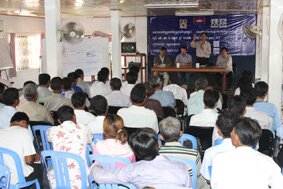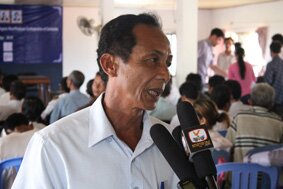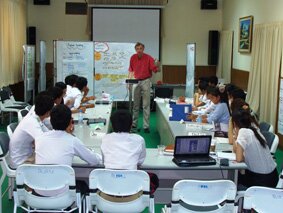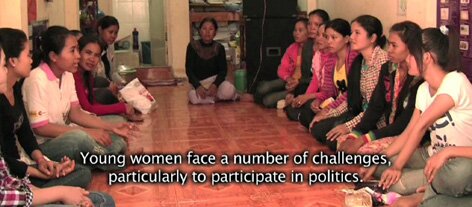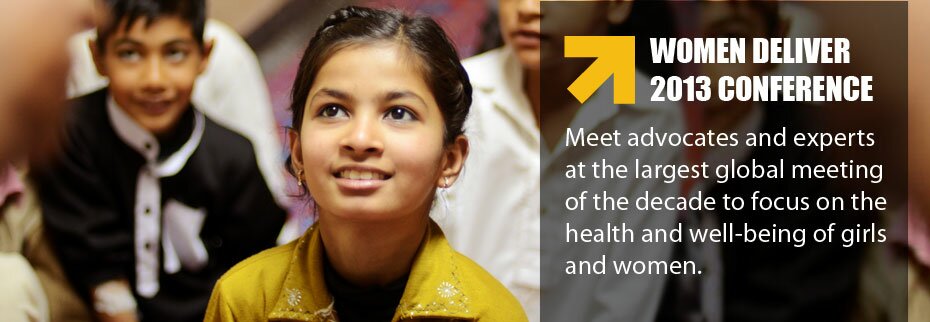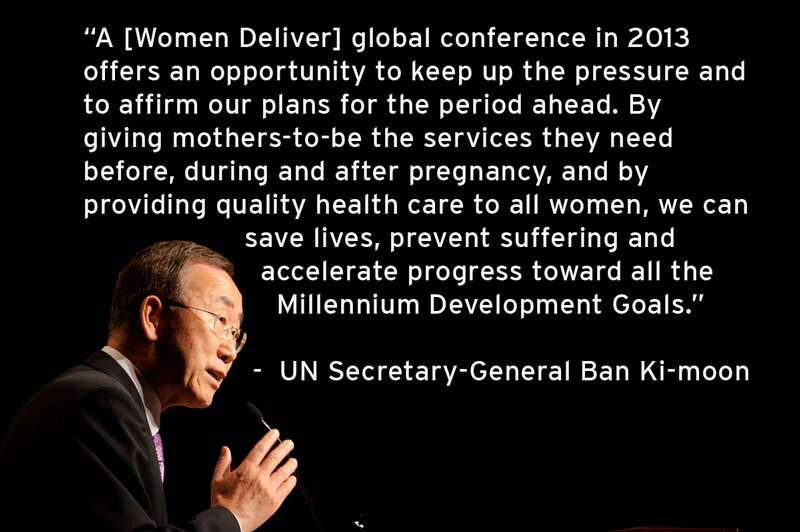Monthly Archives: July 2013
Rising Demand Boosts Organic Rice Industry
Phnom Penh, Cambodia Production of Cambodian organic rice is rising rapidly as international demand for the product increases, experts said at a forum for growers and other industry members held Tuesday at the Phnom Penh headquarters of agricultural NGO Cedac.
“In the first six months of this year we’ve exported about 200 tons of organic rice, which is about double last year’s figure,” said Cedac president Yang Saing Koma, adding that farmers aren’t producing enough to meet demand. “We hope that by next year, we’ll be exporting 1,500 tons annually.”
Although there are about 100,000 farmers who produce organic rice in Cambodia, only about 200 meet international standards, Mr. Saing Koma said.
He said Cedac hopes the number of certified organic farmers will rise to 700 by next year, but certification is a strict, three-year-long process, and farmers who are certified are subject to annual inspections thereafter.
Claudius Bredehoeft, national project coordinator for the regional program ASEAN Biocontrol for sustainable Agrifood Systems of GIZ, the international development arm of the German government, said at the forum that Cambodian farmers are well-positioned to carve out a niche in the rice market. GIZ together with CEDAC is building up the organic rice value chain for the national and international market since 2003. The organic production is preserving the soil fertility on the one hand and supports the farmer to save the costs for chemical inputs on the other. Through the organic and fair-trade certification and market driven approach the farmers are increasing their income as well.
“Since Thailand has introduced minimum rice prices, and Cambodia can export tax-free to the E.U., it has advantages Thailand and Vietnam do not,” he said. “With the fair trade and organic price premium, there are good market incentives to [continue to grow the rice industry].”
Heum Sothea, a farmer from Kompong Chhnang province and forum participant, said that growing organic rice had improved living conditions for her family.
“When I grew conventional rice, I spent a lot of money on fertilizer and chemicals, and cultivated only 1 to 2 tons per hectare. I sometimes had to sell pigs to pay my debts,” she said.
“But now that I grow organic, I harvest about 3 tons per hectare and sell at higher prices. I can use the profit to send my children to school and buy them plots of their own.”
By: Mech Dara and David Kaner
Copyright by The Cambodia Daily
Training promotes Regional Management for Regional Rural Development
Phnom Penh, Cambodia Twenty-two 3rd year students from the Royal University of Agriculture took part in a lecture series on “Rural Development through Regional Management”. Under the GIZ Programme on “Regional Rural Development through Innovative Regional Management” in Southeast Asia (Cambodia and Lao PDR) the lecture series aims to strengthen capacity in rural development in Cambodia. The focus is put on an understanding of the importance of “regions” as subnational, decentralized units (e.g. districts) as entities that can better promote development based on the needs of people in their area.
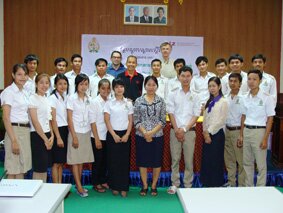
The regional management approach promotes interaction and cooperation between stakeholders of the public and private sectors and civil society. Local and regional actors and institutions identify constraints and potentials for increased incomes and employment. They work out a concept for the development of their regions and plan and implement joint initiatives to promote the local economy.
GIZ sponsored the series with the objective that regional development will be integrated into the Royal University’s curriculum.
“Polishing a Diamond” – Enhancing Women’s Engagement in Local Governance in Cambodia
June 2013
Phnom Penh, Cambodia More than thirty percent of Cambodia’s population is between 15-30 years old; half of this young generation consists of women. However, women – and young women in particular – are not yet well represented and actively engaged in political decision-making processes of the country. For example, young women are not represented in the National Assembly and the Senate at all. Eight-teen percent of the commune councillors are women, but women at the age of 25 to 35 hold only 281 out of 11,450 commune council seats – a proportion of 2.5 percent. Of the 1,633 commune council chief positions, only 8 are held by women of this age.
Against the background of this situation, the Committee to Promote Women’s Political Participation (CPWP) has developed a study in cooperation with the GIZ-implemented EU Programme for Strengthening Performance, Accountability and Civic Engagement (SPACE) of Democratic Councils in Cambodia.
Testimonials demonstrate concerns and hopes for political participation
This case study and the accompanying film, “Polishing a Diamond – Young Women’s Political Participation and Representation in Local Governance in Cambodia”, reflects the voices, experiences, and life stories of young women. The young women interviewed are not a representative sample, but they provide strong testimonials illustrating the concerns, issues, inspirations and hopes regarding political participation and representation.
To give a few examples:
“I moved to Phnom Penh and started working in a garment factory almost 11 years ago. I work 10 hours a day, and I earn US$140 a month. I dropped out of school at grade 9. I understand what politics are: I am aware of my power as a voter and my rights as a citizen. I listen to the radio, and I understand what the commune council is about. But, I am absent from my commune and far from my daughter. I need to work and help my family.” (29 year-old factory worker)
“I do not remember anyone ever telling me that I could be a leader […] but I have [all those] voices in my head, talking about my role as a good daughter and wife.” (30 year-old factory worker)
“We have better education compared with our mothers; we work outside the kitchen; we have access to information, the Internet, Facebook, mobile phones, and SMS. We have CYWEN (a membership-based network for young women [100 members]), and we have more decision-making power both in our own family and in our community compared with our mothers.“ (30 year-old CYWEN member)
“I will support and encourage my daughter to consider joining local politics. I am thinking that women are doing a better job than male councilors. After 10 years of having women as council members, I can see their values. They do not waste time and they are practical. Young women would be even better. I will vote for them. Women in the past could only take care of chickens and the kitchen, but now it is different. They can be leaders, and they are doing a good job.” (57 year-old male commune member)
“[…] I am not sure how I can do it [get involved in politics]. Political parties are not providing us with clear information and simple instructions on what the channels are for young people to obtain more information about a party and its platform, policies, and the youth/women’s movement. How can I join them or approach/contact them? What is the requirement to stand as a candidate? I feel also, it would be so strange if you just go to their office and ask for information. I am personally in the dark and do not want to walk in the dark. What I mean is, politics is a dark tunnel for me, and I need some lights before I can join.” (25 year-old university student)
“Cambodian families expect for their sons to attain public status or high positions, and not for their daughters to do this. I am reflecting on my own experience, which my mom often reminds me of, that I should be modest and not aim for a position that may place me at a higher status than my husband. To put it simply – she wants him to shine, not me. This is not an isolated experience, but a common one among those of us with successful professional careers. We talk about it, we laugh about it, and we are working on it to change our families’ perceptions […]” (30 year-old CYWEN member)
“I send home US$70 per month […] My dad passed away in 1997 when I was 16, and since then I have been the breadwinner of the family. I can imagine myself as a commune councilor, but I stop thinking that thought immediately [...] We need to eat, pay for rent and medical bills, and […] I think then politics is not for the poor and young women like me who need to support their families. It is simple, we can’t afford it.” (32 year-oldowner of a car repair shop)
“In 2002, who could have even imagined that in 2012, 18 percent of commune council members would be women? This will be the story for young women, too. Cambodia is changing. And change is happening (mostly) at the local level. Cambodia and people in the communes are ready to vote for a 25 year-old single woman. […] Political parties are smart, and that is why they are now recruiting young people in all the villages. Village youth leaders of different political parties are joining and attending their commune council meetings.” (19 year-old CYWEN member)
“I am doing my best to recruit more young people for my party. We now have 12 members (youth, ages 18–25) for each village, and I must admit that they are mostly women. Young men refuse to be group leaders, but young women are interested. Women can bring votes for political parties, and both the CPP and the Sam Rainsy Party (SRP) are aware of this. Women can mobilize people in the village and get lots of support. They talk, and they go door to door to listen to villagers. They are so close to the community.” (50 year-old female commune chief)
Bringing new perspectives into politics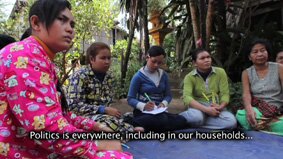
Young women recognize the lack of their interests in politics. Their reasons have to do with politics perceived as irrelevant to their concerns, and their feelings of alienation from an arena dominated by an older generation. This older generation appears to many young women as unapproachable and hierarchical. However, young women also believe in the notion of balancing leadership by including more women and young people. They believe inherently that women will bring new perspectives to solving problems and are interested in what younger candidates might have to offer.
Locating entry points
Through the study and the film, CPWP looks into possibilities, opportunities and entry points for greater engagement in local politics and hopes that this work will serve as a starting point for further discussion and advocacy among relevant stakeholders.
CPWP is a non-profit, non-partisan network of local organizations committed to enhancing women’s political participation and representation in Cambodia, established in 2005. The goals of the CPWP are to promote and advocate for equal access, participation and representation of women and men in political decision-making. The findings of the case study were presented and the accompanying film launched in a Consultation Forum on Young Women’s Leadership in Local Governance with representatives of political parties, relevant ministries, elected commune councilors; youth Networks, women’s rights organizations, relevant local and international non-government organizations and development partners in early 2013.
If you would like to watch the whole documentary “Polishing a Diamond” please visit GIZ Cambodia’s YouTube-Channel!
Muskoka at Women Deliver 2013
Kuala Lumpur, Malaysia Meghan Olson from the Muskoka Project took part in the Women Deliver conference in Kuala Lumpur from 28 to 30 May 2013. During the three day conference she attended lectures on: the social and economic benefits of investing in women’s reproductive health; comprehensive sexual education; closing the gap in MDG 5; gender and family planning; women’s health; challenges for women in leadership; global progress in family planning; gender based violence and sexual and reproductive health and rights; benefits/challenges of public private partnership; ending violence against women; contraception in the post 2015 agenda; adolescent girls in health and development; population, sustainability, and women’s rights; and male involvement in maternal and newborn health.
This conference provided an invaluable opportunity to learn from the experiences of other professionals and organizations in the field and share first experiences of the GIZ Muskoka project. Meetings took place between colleagues from GIZ HQ and MEDICONSULT (Muskoka Consultant Ms. Pinging Yeoh) to discuss and conclude on the baseline study on knowledge, attitude and clinical practice of midwifes. Dr. Alexandra Piprek from Malteser International also attended. Her participation has been supported by GIZ and the EU.
Please visit the conference site to find information on the program, media, partner events, exhibition and sponsorship opportunities, and more. You can watch the archived videos at new.livestream.com/womendeliver.
Search
Follow Us!


All activities are implemented by GIZ on behalf of the German Federal Ministry for Economic Cooperation and Development (BMZ).
Archives
- November 2018 (2)
- October 2018 (2)
- September 2018 (2)
- August 2018 (5)
- July 2018 (2)
- June 2018 (4)
- April 2018 (10)
- March 2018 (6)
- December 2017 (4)
- November 2017 (2)
- October 2017 (8)
- September 2017 (6)
- August 2017 (8)
- July 2017 (4)
- June 2017 (2)
- April 2017 (8)
- March 2017 (10)
- February 2017 (11)
- January 2017 (1)
- December 2016 (6)
- November 2016 (2)
- October 2016 (4)
- September 2016 (6)
- August 2016 (4)
- July 2016 (6)
- June 2016 (2)
- May 2016 (3)
- April 2016 (3)
- March 2016 (4)
- February 2016 (6)
- January 2016 (8)
- December 2015 (5)
- November 2015 (6)
- October 2015 (2)
- September 2015 (8)
- August 2015 (4)
- July 2015 (6)
- June 2015 (4)
- May 2015 (12)
- April 2015 (6)
- March 2015 (11)
- February 2015 (4)
- January 2015 (3)
- December 2014 (3)
- November 2014 (2)
- October 2014 (2)
- August 2014 (5)
- July 2014 (3)
- June 2014 (7)
- May 2014 (1)
- April 2014 (3)
- March 2014 (2)
- February 2014 (1)
- January 2014 (2)
- December 2013 (2)
- November 2013 (3)
- October 2013 (1)
- September 2013 (2)
- August 2013 (5)
- July 2013 (4)
- June 2013 (5)
- May 2013 (6)
- April 2013 (5)
- March 2013 (7)
- February 2013 (3)
- January 2013 (1)
- December 2012 (2)
